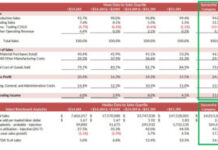by Troy Nix
Much like the housing market of yesteryear with the always anticipated three percent annual increase in property value, recent trends for compensation and wages have nearly followed that exact path. Wage freezes and compensation decreases during the time periods of late 2008 and throughout 2009 have created many perplexing trends in many different job functions.
To capture some of these very perplexing trends in salary trends, MAPP’s 2011 Wage and Salary study examined over 50 different job classifications from 170+ plastics industry related firms. These job classifications represent over 11,875 employees in the plastics industry, with survey participation growing by 30 percent over the 2009 report. From a demographic standpoint, the majority of survey participants represented firms between $5M – $15M in annual sales revenue, and the most predominate processes represented were injection molding followed by extrusion.
Benefit Highlights:
- Employment Growth: For the employment outlook in the plastics industry, there is optimism that growth will continue as 77 percent of the 171 survey respondents anticipated workforce growth through new hires over the next twelve months.
- Pay Differentials: Over 46 percent of those reporting data in this years survey operate a three-shift/five-day operation. With this said, 75 percent of the surveyed population provide some type of 2nd shift pay differential, and 27 percent provide employees between 26-50 cents more per hour for working on 3rd shift.
- Medical Insurance: Although 89 percent of the surveyed population provides medical insurance to their employees, this represents a nearly 10 percent decrease since the 2009 study was conducted. A total of 86 percent provide medical insurance for dependents; 43 percent provide medical Flexible Spending Accounts; and 76 percent provide dental insurance to employees.
- Vacation Requirements: Over 79 percent of the employers in the 2011 survey require a minimum of two years of service or more in order to obtain two weeks of vacation. To obtain three weeks of vacation, 25 percent of employers require ten years of service, while 36 percent require five years of service.
Compensation Overview: As a continuation from the 2009 study, historical trend data has been logged on several job classifications. This historical salary trend data combines information over MAPP’s last four compensation studies showing total median salaries in the “average wage category” from 2003, 2007, 2009 and 2011. By examining several years with of data in one snap shot, it now is possible to measure wage progressions/digressions of specific job classifications. As an example, a general manager’s incremental salary increase over the last nine years was approximately 29 percent or an average annual net gain of about 3.22 percent. With this type of analysis, it became plainly obvious that some job functions have not kept pace with even the most conservative rates of inflation. From this data, one also may be able to recognize that a wide majority of plastics professionals continue to feel the impact of the wage freezes, or in some cases, wage cuts that occurred 18-36 months ago. 
To purchase the full report, visit www.mappinc.com.




